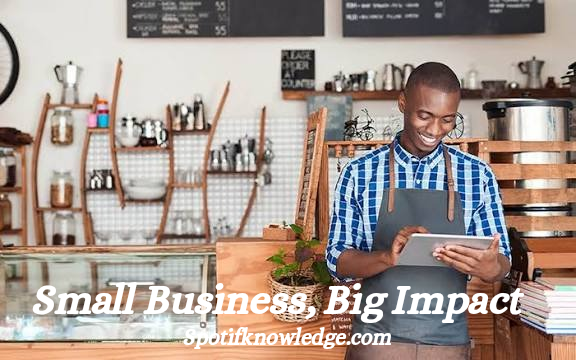Erase the image of traditional business growth from your mind. The most successful startups aren’t simply scaling fast; they’re scaling smart. With consumer expectations being redefined by environmental concerns and regulations growing stricter across the globe, sustainability has become an imperative competitive edge rather than a nice-to-have. While that type of giving is idealistic, the reality is that when startups work with PedroVazPaulo business consultant services, they come to see that sustainable business models are not only for good causes; they’re good for filling their bank account as well.
The numbers tell an interesting story. Enterprises that integrate sustainability into the core of their business are 1.4 times more likely than the average company to have a point-blank breakthrough innovation, according to Boston Consulting Group research. At the same time, 73% of people worldwide are changing what they buy to lower their impact on the environment. When it comes to Startups wanting to grab market share and create long-term loyalty, sustainability is no longer a nice-to-have; it’s a must-have.
The Business Case for Going Green
Sustainable practices deliver three powerful benefits that directly impact your bottom line:
Cost Reduction That Actually Works
Energy conservation practices reduce operational expenses by 20-30% in the first year. Subtle tweaks such as LED lighting, smart thermostats, and cloud-based systems can pare operating expenses and carbon footprints. When your startup adopts circular economy practices, which involve designing out waste and keeping products and materials in use, you’ll save big on raw materials and disposal costs.
Enhanced Brand Image That Drives Sales
Consumers are shopping for premium, responsible goods. B-Corp certified companies enjoy a revenue growth that is 28% higher than their uncertified counterparts. Your sustainable values can therefore be strong marketing assets that set you apart from those competitors and also help you make genuine connections with customers who care about the planet.
Innovation Opportunities That Create Competitive Advantages
Sustainability constraints spark creativity. When you are compelled to come up with eco-friendly solutions, you often end up with more efficient processes, radical new materials, and distinctive value propositions. Some of the most disruptive products result from hard environmental targets. Consider how Tesla revolutionized the automobile industry by concentrating on electric cars.
Key Sustainable Strategies That Scale
Circular Economy Principles
The circular economy model could unleash $4.5 trillion in economic value by 2030, World Economic Forum research says. Stop using the old take-make-dispose and design your products for long life, repairability/time upgrade, and recycling. Software startups can incorporate circular business models into their operations with recurring subscriptions, periodic updates, and trade-ins of hardware assets.
Green Supply Chains
Your supply chain is responsible for 50-70% of your company’s emissions. Collaborate with growers that support your sustainability mission, buy local when you can, and track transparently. Even the virtual meeting etiquette with suppliers mentions sustainability commitments, teamwork, and environmental goals.
Energy Efficiency at Every Level
Intelligent energy management systems can cut consumption by 25-40 %. Solutions: Invest in renewable energy sources, energy monitoring software, and educate your team about best practices for efficiency. Remote work policies also massively cut carbon footprints and save office overhead costs.
Success by the Numbers
The following data demonstrates the measurable impact of sustainable business practices:
| Metric | Traditional Startups | Sustainable Startups | Improvement |
| Customer Retention Rate | 68% | 89% | +31% |
| Employee Satisfaction | 72% | 85% | +18% |
| Operational Cost Reduction | 5% | 23% | +18% |
| Revenue Growth (Year 2) | 15% | 28% | +87% |
| Investor Interest | 34% | 67% | +97% |
*Data compiled from various sustainability reports and B-Corp impact assessments
Real-World Success Story
Patagonia may have started as a small climbing gear company, but it built itself into a billion-dollar brand on the back of environmental responsibility. Their “Don’t Buy This Jacket” campaign even pushed up sales by 30% since customers believed that the brand’s environmental concern was genuine. Its repair and re-use programmes build customer relationships at much lower costs to the environment.
So, too, did Warby Parker for the eyewear sector through a social and business innovation lens. Their “Buy a Pair, Give a Pair” initiative has spread over 10 million pairs of glasses and created customers who care about looking good and doing what’s right.
Read also our recently article: How Students Can Stay Ahead with Professional Help
Your Sustainable Growth Action Plan
Sustainable startups are one thing to think strategically about building a sustainable startup, and another thing to actually do it. Begin with an environmental audit to determine where you can have the greatest impact. Establish clear and measurable sustainability targets in line with business goals. Involve your team: each employee’s buy-in is paramount to successful implementation.
You might want to look into a B-Corp certification or other designations that prove your commitment to stakeholders outside of shareholders. These certifications unlock sustainable investment opportunities, partnerships, and customer segments that value environmental stewardship.
Keep in mind, things at any place along the sustainability journey are rarely about where you are now. Regular review and ongoing improvement processes guarantee that your practices become more sophisticated as your business grows, and new environmental standards emerge.
The startups that win in the next decade are those that understand sustainability as a growth engine, not a cost center. Through the adoption of circular economy design ethos, supply chain optimization, and a greater focus on energy efficiency, you aren’t just building a smarter business; you’re building a smarter tomorrow.

